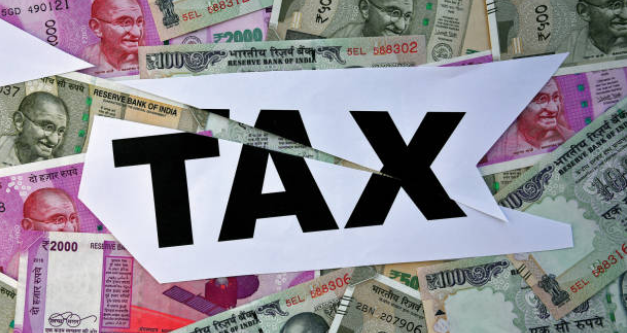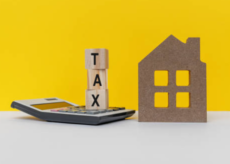Save income tax under 80C, 80D, 80DD, 80CCD(1B), 80DDB, 80GG, 80EE, 80E, 80EEA

To get income tax exemption for the year 2020-21, you have to invest in certain tax saving investment schemes by 31st March. Most people are aware of section 80C and 80D to get tax exemptions, but there are also a number of sections in the Income Tax Act that can help you get income tax exemptions. Today, we are telling you about them so that you can save more and more taxes.
80C – Tax on investments ranging from 80C to Rs 1.5 lakh
Many people start investing to save tax before the financial year ends. Under section 80C, you can claim a deduction of Rs. 1.5 lakh from your total income. Understand this in easy language, you can reduce your total taxable income through section 80C to Rs 1.50 lakh. Term insurance can take advantage of investing in other schemes including 5-year FD and senior citizen savings scheme.
80D – Tax exemption on expenses incurred on health insurance
Section 80D is for deduction on medical expenses. It can save tax on health insurance premiums paid for the health of self, family and dependent parents. The limit of section 80 D deduction for premiums paid for the family is Rs. 25, 000. Senior citizens can claim a deduction of up to Rs. 50,000 on the premium paid. Further, health check-up to the extent of Rs. 5,000 is also allowed and has been included in the overall limit.
80EEA – 1.5 lakh discount on home loan interest
An additional tax exemption of Rs. 1,50,000 can be availed on home loan interest under Section 80EEA. However, the first condition is that the stamp value of the house should not exceed Rs. 45,00,000. The home loan is taken between 1st April 2019 to 31st March 2022. The carpet area should not be more than 60 square metres or 645 square feet. This condition is for metro cities. The carpet area for other cities can be 90 metres or 968 square feet.
80E – Benefits of tax exemption on education loan interest also
Section 80E provides interest deduction on education loan. The important conditions associated with claiming such deductions are that the loan should be taken by a person or his spouse or children from a bank or financial institution for higher education (in India or abroad). One can claim this deduction starting from the year in which the loan starts to be repaid and for the next 7 years or before repaying the loan, whichever is earlier.
80EE – Tax exemption on home loan interest
Section 80EE allows the landlord to claim an additional deduction of Rs. 50,000 (Section 24) on the interest of home loan EMI. But the condition is that you should not exceed Rs. 35,00,000 and the value of the property should not exceed Rs. 50,00,000 lakhs. Moreover, a person should not have any other property registered in his name at the time of sanction of loan.
80GG – Tax exemptions will be paid even if you live in a rented house
Even if you do not get house rent allowance (HRA) but you live in a rented house, you can get tax exemption on rent given under section 80GG of the Income Tax Act, 1961. A maximum discount of Rs 60,000 (Rs 5,000 per month) is allowed annually under section 80GG. You cannot get the benefit of this section if you (or your wife/child) have their own home. To claim the advantages of this section, you need to fill out the 10BA form.
80DDB will save tax if spent on treatment
Under section 80DDB, income tax deduction is paid on the amount spent in the treatment of serious and prolonged illness of one of its dependents. An income tax payer can claim for deduction of the amount spent in the treatment of his parents, children, dependent brothers and sisters and wife. These include diseases like cancer, haemophilia, thalassemia and AIDS etc. Generally, the deduction is Rs. 40,000. In case of senior citizens, the deduction can be up to Rs. 1,00,000. A medical certificate is necessary for this.
80CCD (1B) for benefits of Rs. 50,000
If you have availed national pension scheme, you can avail income tax up to 50 thousand under section 80CCD (1b). Thus, by mixing sections 80CCD (1b) and 80C, you can avail tax exemption up to a total of Rs. 2 lakhs.
80DD – Tax exemption on treatment expenses of person with disabilities
If you are spending on the treatment of a disabled person, you can get tax exemption under this section. A person with disabilities may have parents, wives, children, brothers and sisters who are dependent on the person concerned. There can be any family person in the Hindu Undivided Family (HUF) case. If dependent relatives are handicapped 40% or more but less than 80%, income tax can be relaxed up to Rs. 75,00,00. If the relative is severely handicapped i.e. more than 80%, the tax reduction will be Rs. 1,25,000 lakh. A disability certificate will be required from a recognized medical authority for this claim.


Hi, I am Nikesh Mehta, owner and writer of this site. I’m an analytics professional and also love writing on finance and related industry. I’ve done online course in Financial Markets and Investment Strategy from Indian School of Business. I can be reached at [email protected].



